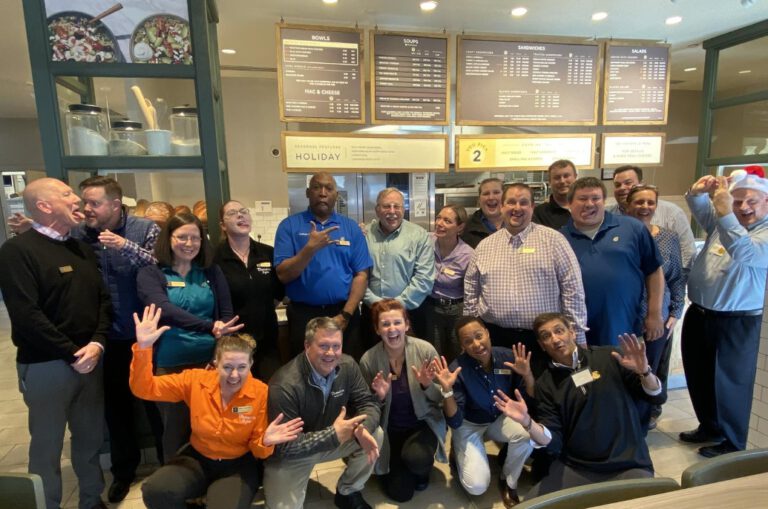Home Chef: From Meal-Kit Company to Meal Delivery Service
From the founder’s initial idea of finding more convenient ways to get a delicious dinner on the table after long working hours, Home Chef is now one of the largest meal kit delivery companies in the U.S., with over 3 million meals delivered each month. Let’s read on to uncover its story!
What Is Home Chef? How Big It Is and What Does It Specialize In?
Founded in 2013 in Chicago, Home Chef was the result of its founder Pat Vihtelic’s passion for cooking. However, it was his own resourcefulness — building the company’s first website, delivering meal kits in a rented U-Haul truck, and pouring his personal savings into the company — that helped it thrive.
That can-do spirit was the key ingredient in Home Chef’s recipe for success at first stage, helping this meal-kit company to have production facilities nationwide. This Chicago-based company is the third-fastest-growing private company in the country, according to Inc. 5000 2018. In the same year, it merged with Kroger – a food retail giant, then offered quick meals for grocery stores, giving its employees additional options for scalability and product complexity.
“Our merger with Kroger has given us the opportunity to accelerate availability of meal kits and position the company in such a way that we can really revolutionize how families and individuals cook, shop for and prepare their meals,” – according to Vihtelic.
The initial transaction price was $200 million, with future earnout payments of up to $500 million over five years, contingent on achieving milestones such as significant growth of in-store and online meal kit sales. The deal came on the heels of Home Chef’s 150 percent growth in 2017, with $250 million in revenue and two profitable quarters.
Since then, Home Chef has grown to more than 2,100 Kroger stores throughout the country and has enjoyed significant growth in new categories. In 2020, Home Chef increased its brand sales by 118 percent as its e-commerce company developed dramatically when customers shifted more to online meal orders. This company has a wide variety of roles to serve its customers’ needs from digital to physical.
Grow Out of Humble Origins

As other startups, Home Chef faced a lot of challenges at first stage. However, by having some pivotal decisions as well as defining strong orientation, it has expanded successfully. Let’s discover the origins that influence the company today!
Capitalize on the Opportunities
There were some scary times where Vihtelic had to reach into his personal savings to make sure they would be in a position to hit payroll running a new business. Those experiences somehow helped them build a scrappy and pragmatic foundation.
To capitalize on the growth opportunity the founder saw early on, however, he knew that he needed a financial partner to help fund the business. That put this company on the path of raising venture capital.
“Those early days taught us to be efficient with very little resources, which served us well to use capital responsibly and reach profitability.” – said Vihtelic.
As the company grew, he prioritized areas that were most important to the business and then built the team to ensure they had the right expertise in those places while maintaining their culture. He also defined the company’s mission: having a wide variety of roles to serve customers’ needs from digital to physical.
Improving Operation Using Technology
As Home Chef evolves from an e-commerce meal kit business, its plant teams will be required to manage more operational complexity. To develop tools and processes that drive continuous improvement, while also preparing the team for growth and product complexity are always the goals of this company.
One of the operational projects at Home Chef is putting together a core set of key performance indicators every day. At first, the employees had to do it manually – by rotating on-call schedule for who would pull the labor reports each day. That was the motivation for them to web-scrape to automate the process.
Today, half of this company’s operations excellence team is dedicated to tech product management, and the other half supports the process improvement and analytics. In the other word, they have made good progress on building basic applications and tools that help them get the job done
“But there’s so much more we can do to make our tools smarter and more automated. We’ve only scratched the surface in terms of how technology and software can support our operations.” – Katie Bevier, Sr. Director of Operational Excellence in Home Chef.

Healthy Software Engineering Team Culture
One of the cultures at Home Chef is that members are at ease acknowledging their errors, taking chances, and recovering when they failed. From that perspective, one of the most important things Home Chef did was hire several junior developers fresh out of Dev Bootcamp early on.
They also established an apprenticeship engineering program to choose potential developers. At the end of this two months program, they could part ways with an apprentice; however, because of being so impressed with everyone who has gone through this program and their enthusiastic attitude, they even hired every single one.
Answering in the interview with Built in Chicago, Dave Giunta, VP of Engineering in Home Chef defined the goals of software engineering team: “We have two primary goals in the short term: We want to grow our capacity to meet the needs of the business as we enter the world of retail, and we need to grow our process for getting work done.”
The Idea of “Ideal Work Environment”
At Home Chef, employees hold a firm belief in the power of food as a potential way to support new inroads to diversity and equity, not only in the United States but also in the company at large.
“We are a food company, and food is political,” said Jordyn Duggan, the company’s national continuous improvement manager. “Food is involved in all kinds of oppression and all kinds of equity. We want to be overwhelmingly on the side of equity.”
One of this company’s projects was to begin a series of new initiatives aimed at educating employees. By this way, they could create a welcoming environment and empower each member of the workforce to be the best version of themselves.
The essential ingredients of this inclusive environment — psychological safety, empathy, awareness, and a growth mindset — are embraced by Home Chef’s many employees from diverse backgrounds and are brought together by the strength and support of the company’s long-standing employee resource groups.
“The top of our priority list was addressing how we diversely hire candidates and how we educate the people who are here so that we can retain them and spread overall awareness about our diversity, equity, and inclusion (DEI) initiatives.” – said Jasmine Primm, Home Chef’s director of DEI.
This company also have a learning and development team because there is a baseline amount of education that everyone needs. On top of that, its many ERGs are another way Home Chef’s able to educate and empower its workforce.
In the other word, all employees have access to learning and development opportunities to broaden their knowledge base on issues such as mental health and wellbeing, as well as professional development abilities. This culture ensures company’s employee bonding, development, and well-being flourishes.
Even during remote working time because of Covid 19, Home Chef also has various solutions to help employees stay connected: It sent out fun gifts to employee homes as well as increased social activities by playing Jack box Games, Among Us and even role-playing games via Zoom. The executive teams also had “ask me anything” sessions, which put the whole company in a good spot to ask hard questions and feel like in tune with what its leadership had top of mind.
The Secret Ingredient Building a Success

From initial great idea to human and financial support, there are vital ingredients making this start-up a success. They are the combination not only internal but also external factors.
Customer-Centric Services
According to Vihtelic, Home Chef stands out from similar-sounding companies in a couple of ways. The big one is flexibility — customers get to choose their meals from 10 13 overall choices on a given week, and the service even uses a “taste algorithm” to recommend meals that they’ll probably like based on their preferences.
“We listen to our customers —that tends to dictate what ends up on our menu, versus trying to be exotic or something like that,” Vihtelic added.
They take a lot of time to evaluate their menu for cooking ease, taste, and nutrition, and they also extensively use customer feedback to influence future offerings. They have even created a program called “Beta Box” where longtime customers are invited to evaluate and give their feedback on recipes they are considering.
For Home Chef, it’s really important to have menu items that their customers will love to make and eat. That customer focus drives everything they do.
Strengths of Hometown
Chicago is one of the country’s food capitals and boasts a deep pool of top industry talent. This Windy City also has an amazing startup scene. These factors, combined with an intense customer focus, have helped Chicago-based Home Chef both survive and thrive in the fiercely competitive meal kit delivery space.
In fact, Chicago has had a powerful influence on this company’s menu and has helped them keep the freshness their customers have come to expect. Their menu draws inspiration from both the hearty simplicity of Midwestern cuisine and the cultural diversity in Chicago.
Besides, Chicago is brimming with energetic talent in various fields such as technology, culinary, marketing, operations, and more. Thanks to the great universities and strong pool of local talent, this company has been able to recruit many of its top employees from right here.
Social Creative Strategy
As companies that sell convenience continue to gain steam across the US, food delivery businesses, especially meal-delivery services, are competing harder than ever. With over hundreds meal delivery companies trying to tap into this potential market, besides the quality of product, advertising across digital to keep up with the market is essential.
From spending to creatives, Home Chef obviously prioritizes social media when 75% of the brand’s new digital creatives were developed exclusively for Facebook advertising. Almost 90% of those social creatives were link post advertisements, which sent users to a range of relevant landing sites with a call-to-action button.
At Home Chef, they really kind of operate on an “always-on” basis. That basically means that they are working to every week of the month have consistent programming, consistently sharing their brand message and different offers in order to get people to sign up.
The Bottom Lines
With its bright approach to niche market, emphasizing on meal-delivery services, and ability to create multi-community of support, Home Chef has been ahead of the curve in so many ways.









